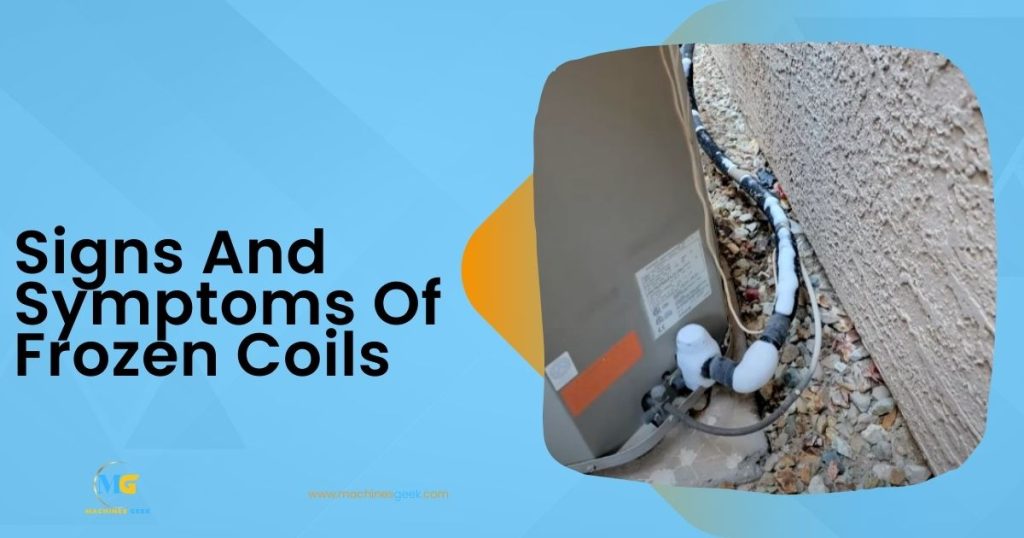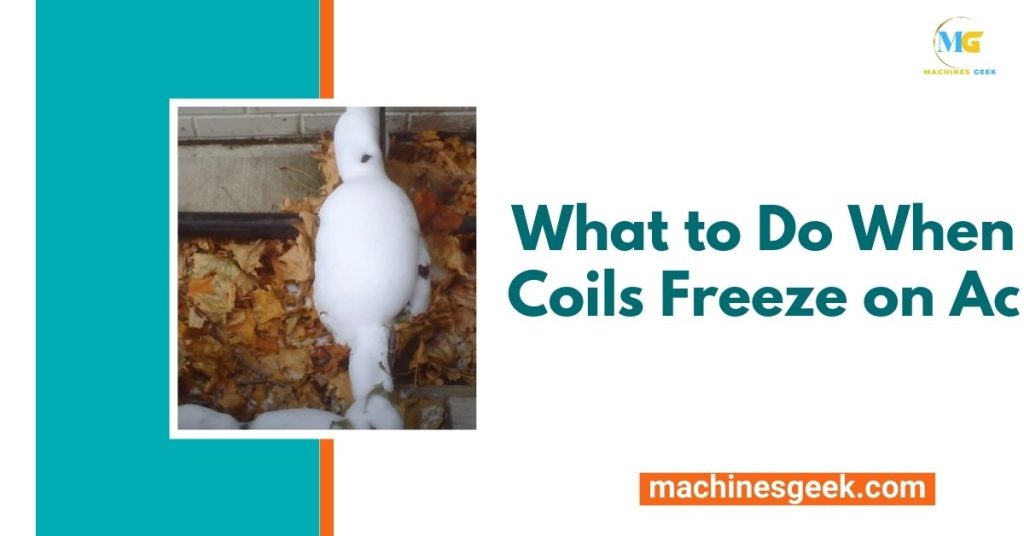What to Do When Coils Freeze on Ac? To fix frozen coils on your AC, turn off the unit, let it thaw completely, and clean or replace the air filter if necessary. When your AC coils freeze, it can cause a significant disruption to your comfort.
But don’t fret – there are steps you can take to resolve the issue. Freezing coils are often caused by restricted airflow or low refrigerant levels. To tackle this problem, start by turning off the unit and allowing it to thaw completely.
Once thawed, check the air filter for any clogs or dirt accumulation. Clean or replace the filter if necessary as it plays a crucial role in maintaining proper airflow. Taking these simple steps can help prevent coil freezing and ensure your AC functions efficiently.
The Causes Of Coil Freezing
Understanding the causes of coil freezing in AC units is crucial in preventing frequent breakdowns and maintaining optimal cooling performance. One common reason for coil freezing is low refrigerant levels, which can lead to inadequate heat transfer and cause the coils to become too cold.
Regular maintenance and checking refrigerant levels can help prevent this issue. Another common cause is dirty air filters that restrict airflow and reduce heat exchange. Regularly cleaning and replacing air filters is essential to prevent coil freezing.
Additionally, blocked or obstructed airflow due to vents being closed or blocked by furniture can contribute to coil freezing. Ensuring unobstructed airflow throughout the room can help prevent this issue. Lastly, mechanical problems such as malfunctioning thermostats or blower motors can also lead to coil freezing and should be addressed by a professional technician.
Signs And Symptoms Of Frozen Coils

Identifying external and internal indicators of frozen coils can help prevent further damage to your AC system. Externally, you may notice the AC unit working harder than usual and ice formation on the refrigerant lines or evaporator coil.
Internally, decreased airflow from vents and a reduction in cooling capacity can be signs of frozen coils. You may also hear a hissing or gurgling sound from the unit due to refrigerant flow issues.
Understanding the impact of restricted airflow on coil freezing
Frozen coils often occur due to restricted airflow caused by dirty filters, blocked ducts, or problems with the blower motor. When the airflow is restricted, the temperature inside the evaporator coil drops, leading to the formation of ice.
Regular maintenance can help prevent coil freezing by ensuring proper airflow and detecting any issues early on. Keeping the filters clean, checking the ductwork for obstructions, and maintaining the blower motor are essential steps in maintaining optimum airflow and preventing coil freezing.
Step-by-step Guide To Thawing Frozen Coils
When coils freeze on your AC unit, it’s important to take immediate action to prevent further damage. Follow this step-by-step guide to safely thaw frozen coils:
- Step 1: Turn off the AC unit and switch it to fan mode.
- Step 2: Use a hairdryer or warm water to expedite the thawing process. Be careful not to apply excessive heat, as it can cause damage.
- Step 3: Monitor the coils for any signs of damage or refrigerant leaks. If you notice any issues, it’s best to contact a professional technician for assistance.
Thawing the frozen coils will help restore the proper functionality of your AC unit. Remember to follow these steps carefully and prioritize safety throughout the process. By taking prompt action, you can minimize potential damage and ensure your AC unit operates efficiently.
Preventive Measures To Avoid Coil Freezing
Regular air filter replacement and cleaning is crucial in preventing coil freezing on an AC unit. Air filters help to trap and remove dust, dirt, and debris from the air, ensuring clean airflow through the system. Over time, these filters can become clogged, restricting the smooth flow of air and causing the coils to freeze.
Scheduling professional HVAC maintenance to check for refrigerant leaks
Another important preventive measure is scheduling professional HVAC maintenance. Technicians can check for refrigerant leaks, which can lead to reduced cooling capacity and potential coil freezing. They can also identify any other issues that may contribute to coil freezing and rectify them promptly.
It is also crucial to ensure unrestricted airflow around the AC unit. The unit should be positioned in a location that allows sufficient space for air to flow freely. Any obstructions, such as furniture or plants, should be removed. Additionally, regular cleaning and removal of debris from the outdoor unit is essential to maintain proper airflow and prevent coil freezing.
Troubleshooting Common Issues That Cause Coil Freezing
Coil freezing is a common issue that can impact the performance of your AC system. To troubleshoot this problem, it’s important to investigate potential causes such as issues with the thermostat or temperature controls, obstructions in the air ducts or vents, and the insulation and sealing of the AC system.
Start by checking the thermostat or temperature controls to ensure they are functioning properly. Make sure the settings are accurate and adjust them if needed. Next, inspect the air ducts and vents for any obstructions that may be restricting airflow. Clear away any debris or blockages to promote better circulation.
Lastly, evaluate the insulation and sealing of your AC system. Poor insulation or gaps in seals can result in air leakage, leading to inadequate cooling and potential coil freezing. Consider upgrading insulation or using weatherstripping to improve efficiency and prevent future freezing episodes.
Expert Tips For Maintaining Coils And Extending Lifespan
Frozen coils can be a frustrating issue to deal with when it comes to AC maintenance. One effective way to prevent this problem is by regularly inspecting and cleaning the condenser unit. By removing any dirt, debris, or blockages, you can ensure that the coils remain clean and free from freezing.
Using coil cleaners specifically designed for AC units can help to remove buildup and keep the coils in optimal condition. These cleaners are formulated to effectively remove dirt and debris, without causing any damage to the coils.
An annual coil cleaning is also highly recommended to maintain the AC unit’s performance and extend its lifespan. By understanding the benefits of regular maintenance services, including coil cleaning, you can prevent coil freezing and ensure that your AC system runs smoothly.
Frequently Asked Questions
Why Do Ac Coils Freeze?
AC coils can freeze due to dirty filters, low refrigerant levels, or restricted airflow, causing decreased cooling efficiency.
How Can I Prevent Ac Coils From Freezing?
To prevent AC coils from freezing, regularly clean or replace air filters, maintain proper refrigerant levels, and ensure sufficient airflow.
What Should I Do If My Ac Coils Freeze?
If your AC coils freeze, turn off the unit to thaw the coils, check for airflow restrictions, and consult a professional if the problem persists.
Conclusion
Dealing with frozen coils on your AC unit can be a frustrating situation, but it is important to address it promptly to prevent further damage. By following the tips in this blog post, such as checking for airflow restrictions, cleaning the filters, and ensuring adequate insulation, you can effectively tackle this issue.
Remember, regular maintenance and professional assistance are key to keeping your AC system running smoothly and efficiently. Stay proactive and keep your cool!








